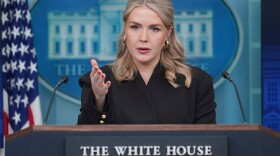With next year's Super Bowl in Miami-Dade County expected to draw tens of thousands of tourists to the area, a new project aims to promote sustainability and mitigate the environmental impact of the event.
The 'Ocean to Everglades' initiative, which will begin in the coming months and run through February 2020, will feature beach cleanups, mangrove planting and coral restoration. It also seeks to harness attention on the Super Bowl to create more awareness about challenges facing South Florida’s environment, organizers say.
“Once that final play is over and there’s a winner and the Super Bowl lights get turned off...we want to make sure these environmental issues we’re pushing are long-lasting,” said Eric Eikenberg, the CEO of the Everglades Foundation. The initiative's partners include the Miami Super Bowl Host Committee, Everglades Foundation, Ocean Conservancy and NFL Green.
Next year’s Super Bowl at Hard Rock Stadium in Miami Gardens will be the 11th in the Miami area, the most of any other city.
Super Bowls rely heavily on energy and release a significant amount of carbon emissions during the game and through the transportation of fans. The 2013 event in New Orleans, for example, released 3.8 million pounds of carbon dioxide.
The Ocean to Everglades project aims to offset environmental degradation by keeping plastic from the game out of the ocean and educating people about the environment through Everglades excursions and fishing trips, said Emily Woglom, executive vice president of the Ocean Conservancy. It will also provide lessons about the environment to schools.
Other projects will include mitigating food waste, recycling building material used for the game and planting new trees.
“When you have big events, there’s costs to that,” said Gov. Ron DeSantis, who joined NFL officials, environmentalists and other elected leaders Monday at Marjory Stoneman Ocean Beach Park for the launch of the project.
Wolgom noted the challenges facing South Florida’s environment, including past algae blooms. The new programs seeks to address such issues and also increase awareness about climate change, said Jack Groh, the director of the NFL Environmental Program.
“Seventy percent or more of people in this country pay attention to sports,” he said. “If you want that 70-plus percent to pay attention to what’s happening on the environmental front, take that message, wrap it around an NFL football and throw a Hail Mary into the endzone.”
The Ocean to Everglades initiative is the latest form of outside environmental assitance to come to Miami-Dade.
Earlier in April, the Environmental Protection Agency awarded the county a $100 million low interest loan to help end a practice of flushing treated sewage offshore.
Copyright 2020 WLRN 91.3 FM. To see more, visit WLRN 91.3 FM. 9(MDAyMTYyMTU5MDEyOTc4NzE4ODNmYWEwYQ004))







